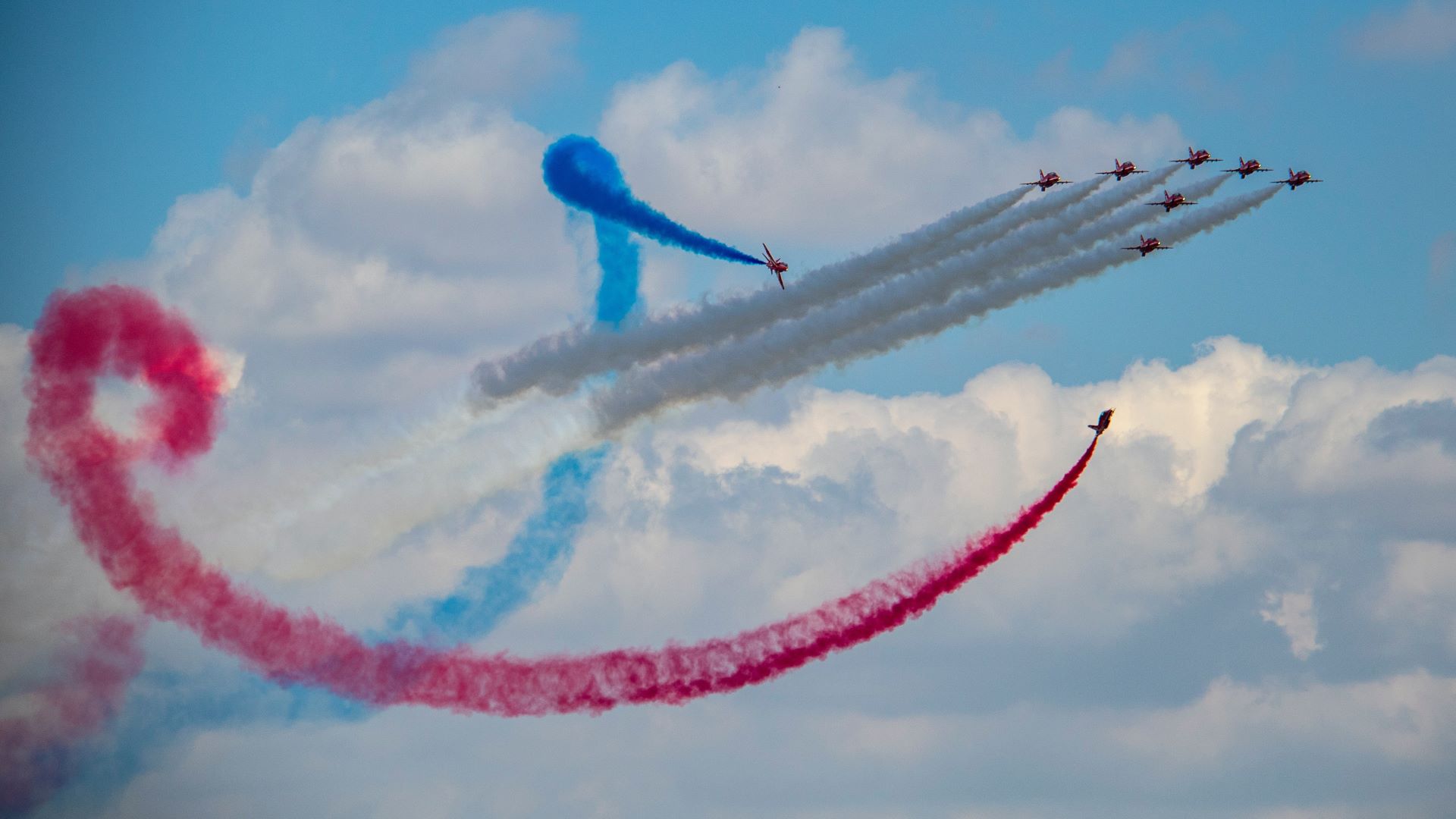Sexism, harassment and bullying plague the Red Arrows, the UK Royal Air Force’s display team. This revelation was the outcome of investigations into complaints of bad behaviour in this elite organisation. Air Chief Marshal Sir Rich Knighton said that “behaviour that would be classed as unacceptable was widespread and normalised on the squadron”.
To me, the Red Arrows have always represented discipline, precision, skill, bravery and professionalism. They are the real-life Top Guns. Now, I’ll never be able to look at red, white and blue trails in the sky in quite the same way.
As a psychologist, I should perhaps be less shocked. Many of us suffer from a particular cognitive bias that involves projecting the characteristics of a role onto the people who play that role. But just because the Red Arrows display discipline and professionalism doesn’t mean all individual members of the team will have those same characteristics.
Lack of self-doubt
Elite groups, be they military or otherwise, present with a particular set of psychological challenges. One is that they often play by different social rules to everyone else. In their entrenched macho culture, women in the Red Arrows squadron were viewed as “property”.
Elites are, by definition, highly selected both in terms of skills and psychological characteristics.
In a military setting, such traits include mental toughness, which can also come with a certain emotional coldness. This helps an individual to stay calm under pressure and to focus on the task in hand rather than on other people. Other people’s wellbeing may therefore not be a major priority in a highly competitive, survival-of-the-fittest situation.
Those selected have to be able to operate at the highest level. There is always jeopardy. The top, after all, can be a narrow ledge – precarious and anxiety-producing. As I’ve shown in a recent book, emotional displays and expressions of self-doubt are likely to be highly discouraged among elites.
Bottling up emotions can be psychologically damaging, though. It may reduce our ability to empathise with others. Several studies have also shown that people who have a good grasp of their emotions, noticing them and thinking critically about them, often make better decisions. People who ignore their feelings can, counter-intuitively, end up being more driven by them.
If we don’t realise that we have feelings of fear or self-doubt, because we are discouraged from doing so, we may act out in anger when that uncomfortable sensation hits.
Narcissism
Elites also know how special they are. They are told so endlessly. This will feed any inherent narcissistic tendencies.
There may be a genetic component to narcissism, but narcissism can develop within an individual over time – and within a culture. Narcissists will need to be at the centre of attention in all spheres of life – not just up there in the sky with the public gaping up at them.
They will require narcissistic attention, accolades and validation in other aspects of life, including their relationships. Narcissists are more likely to switch partners because new partners are always better at giving attention and complimenting them than existing partners.
It seems there was a “high propensity” to engage in extramarital relations in the Red Arrows. This was no doubt partly down to opportunity and the undoubted glamour of the role, but perhaps also attributable to this narcissistic need.
As Colonel Bernd Horn, Deputy Commander of the Canadian Special Operation Forces Command points out in the Canadian Military Journal, elites also breed an in-group mentality that can become “dangerously inwardly focused”. Elites trust only those who know the score and who have passed the same rigorous selection tests that they have.
They therefore become harder to influence from the outside, where behaviour may be perceived more objectively. Objectivity, however, is very important in life.
Moral confusion
Being in an elite group grants access to resources and opportunities others may not have. This, of course, creates a sense of entitlement and privilege, which can further stoke egos of narcissistic people and affect moral decisions.
The belief that you deserve special treatment and are exempted from certain moral obligations can lead to a skewed perspective on right and wrong. The boundaries can become blurred after a while.
Elites are also in a position to prioritise their own interests, driven by this desire, conscious or unconscious, to maintain their status and protect their privileges. Their insularity means that they are often surrounded by like-minded people who share similar values and perspectives and encourage this.
These social circles can influence their moral compass by reinforcing certain beliefs and behaviour, without the necessary critique.
Those of us who are not part of an elite group may also play a part. Some of us may recognise the elite’s position, power and privilege and be unwilling to sanction them because of their perceived importance (in the case of the Red Arrows as iconic representations of national identity). Knighton described this as “bystander culture”, though a better term here might have been “bystander apathy” .
It’s important to keep in mind that these are issues that affect all elites – from politicians and people who went to top schools to social media influencers. Personalities, fed and developed by attention and accolades until they’re dependent on them, may become trapped in an echo chamber of shared values. This often comes with an immunity to criticism from those outside the group who could never understand the pressures of the elite.
So while elites can be very special, it’s not necessarily always in a good way. We should all do our best to call out their bad behaviour.
Geoff Beattie, Professor of Psychology, Edge Hill University
This article is republished from The Conversation under a Creative Commons license. Read the original article.
November 7, 2023



